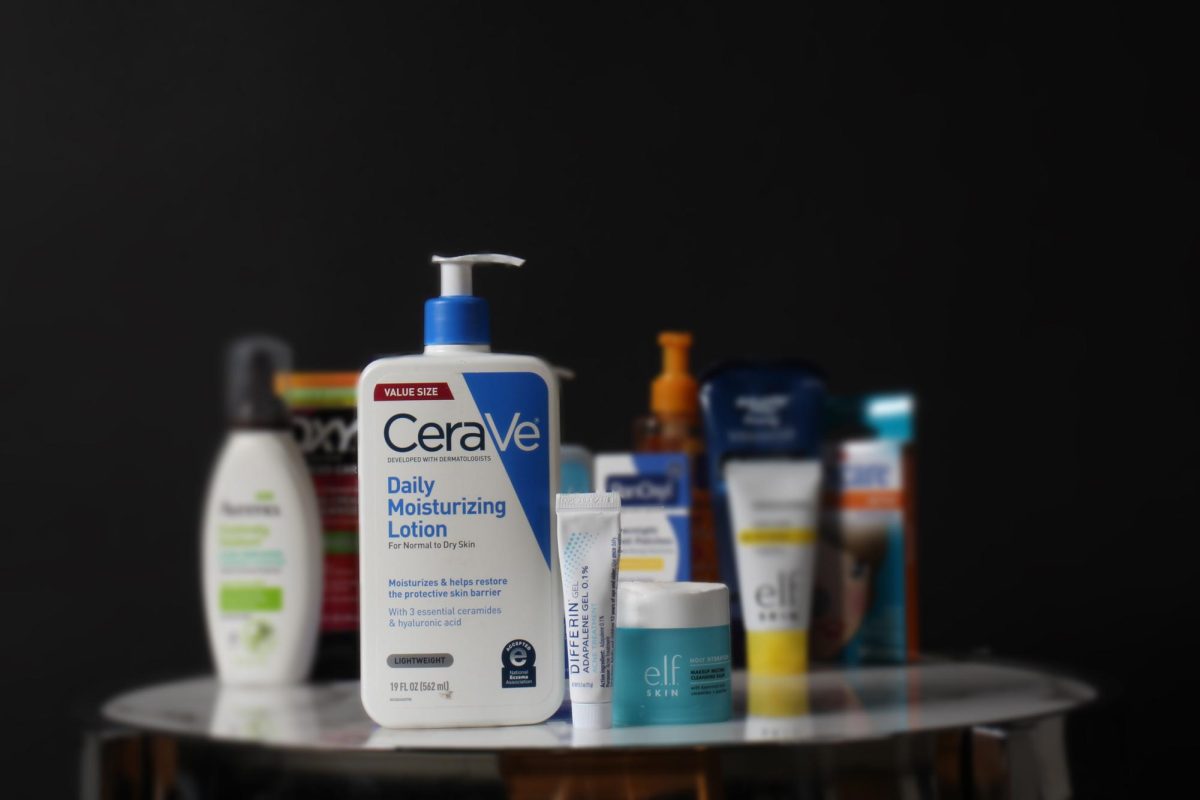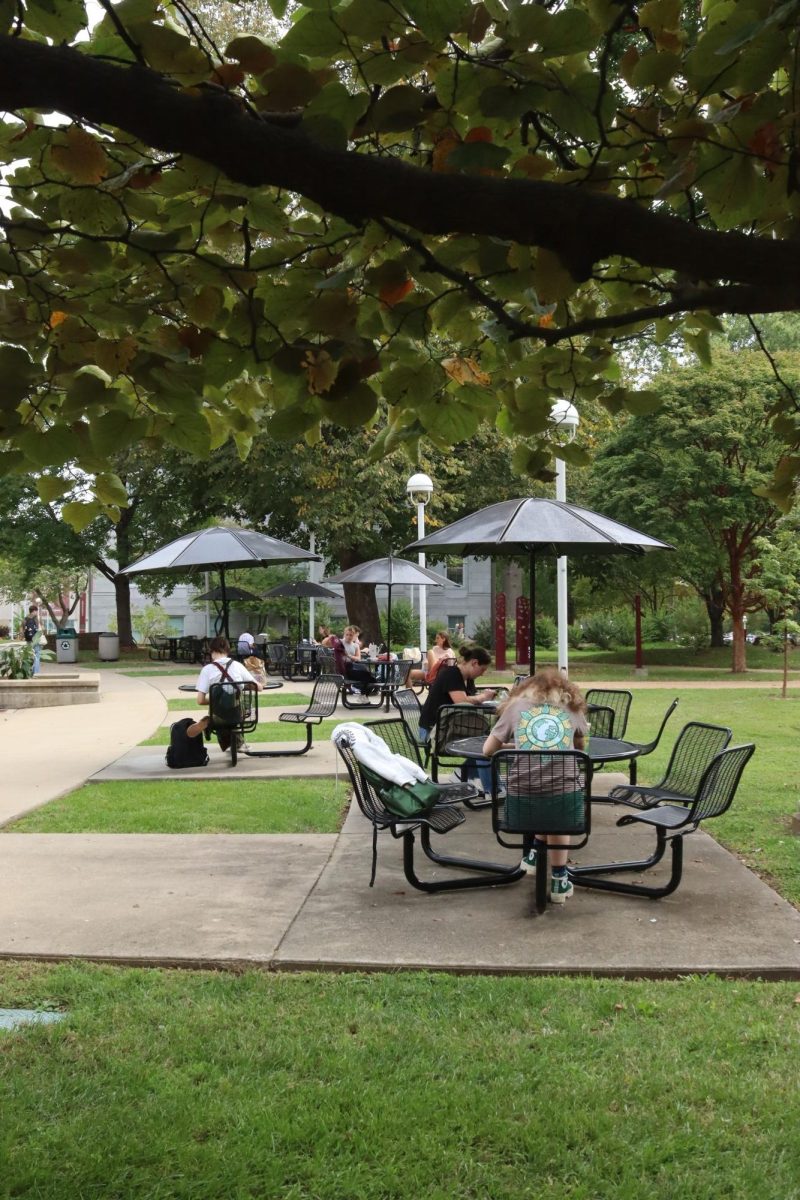With 25,000 videos posted under the hashtags “Underconsumption” and “UnderconsumptionCore” on TikTok, the new trend of ditching out 10-step skincare routines and massive clothing hauls in exchange for a more minimalistic way of living is making waves across social media.
Underconsumption’s core is linked to the economics term and is by some considered a response to a recent influx in overconsumption. Professor of consumer studies at Virginia Tech Dr. Patti Fisher said that the term underconsumption is fitting for some people who are working to change current trends.
“As Americans, we’ve been buying more than we need for quite some time,” Fisher said. “Many Americans are still continuing to spend more than they earn and live paycheck to paycheck.”
Director of consumer sectors at Business for Social Responsibility (BSR) Berkley Rothmeier said that the new trend is an equal and opposite reaction to overconsumption.
“It’s maybe more the emotional truth than the literal truth,” Rothmeier said. “We’re not looking to actually under-consume in terms of depriving ourselves of things or having less than what we need. But … it’s a bit of hyperbole, but a reaction to kind of recalibrating this idea of consumption and need, back to something a little bit less supercharged.”
For students at Nixa High School, making informed shopping decisions can be a challenge. Sophomore Jacob Jackson said that thrifting has helped him save money and become a better shopper.
“Online, there are so many options you can choose from, and so you can buy … a bunch of stuff,” Jackson said. “But thrifting, there’s a limited selection, and not all of it will fit you or what you’re looking for. … They just have what they have.”
Underconsumption core promotes practices like thrifting that allow for the repurposing of old clothing that otherwise would go to waste.
“Thrifting is like luck. You don’t know [what] you’re going to get,” Jackson said. “Sometimes you find stuff that you like. Sometimes you don’t. So, you don’t spend too much, buy too much and you overall help reduce waste by not buying new.”
Bridging the gap for better consumer awareness and a more renewable world may require work. Rothmeier said BSR’s main mission is to work with companies for a more just and sustainable world.
“The way we work is our teams are matrixed across industry-focused teams like consumer sectors and issues or areas of expertise,” Rothmeier said. “Teams that focus on things like business transformation, climate change, nature biodiversity and human rights.”
Media plays a role in consumers’ purchasing habits.
“The media influences consumers in many ways,” Fisher said. “Advertisers don’t tend to provide information about their products and services and often tell people they ‘need’ or ‘deserve’ things to induce them to make more purchases. On social media, there are many people and influencers marketing products to make money. Consumers need to keep that incentive in mind so they don’t spend their money on things they don’t need or that don’t live up to expectations.”
Rothmeier said that being aware of a brand’s advertising tactics can help make shoppers more educated consumers.
“Something I think about a lot is how incredible brands are at telling us what we want, need and know, remembering that is the core skill and competency of any consumer brand,” Rothmeier said. “They create trends. They create demand and desire, and have enormous marketing, design and product development teams.”
Disposable incomes can play a role in trends surrounding consumerism.
“A lack of disposable income can make one move toward under consumption core, want to or not,” Rothmeier said. “[It] is a huge driver and, even more so than actual disposable income … the perception of disposable income. When folks feel like the economy is bad and they feel like they’re strapped for [money], and passion things are expensive, they spend less.”
Underconsumption core has brought along a new mindset for some who want a life free from the strains of consumerism. Fisher said that recent trends have shown people being more attentive to what they are purchasing.
“One recent wave of underconsumption is not necessarily associated with disposable income but is tied to people wanting more flexibility in their lives,” Fisher said. “These people don’t want to spend all their life working just to buy and have things. For some people, sustainability and ethics are factors in underconsumption. These individuals may keep electronics and phones for long periods because they’re concerned about waste as well as how many products are manufactured.”
Sourcing clothing from sustainable companies or buying old can serve as a step towards a more renewable world. Rothmeier said that the brands people buy can have both positive and negative effects on personal beliefs.
“Thinking about, what your core values are, making sure that you align your choices with that, recognize when you may be being influenced by something in a way that maybe doesn’t align with your goals and also just continuing to be aware of what the companies that you’re purchasing from, are up to in terms of sustainability practices,” Rothmeier said. “You can, always kind of vote with your dollars and make those choices, based on where you see.”
Categories:
Consumer Consciousness
New Underconsumption Core trend sparks thoughts on consumer awareness
Martin Schmalzbauer, Staff Writter
December 16, 2024
“It’s potentially more challenging for something like cosmetics or personal care, where products actually expire, or have a literal shelf life in a way that apparel doesn’t,” director of consumer sectors at Business for Social Responsibility Berkley Rothmeier said.
3
More to Discover
About the Contributor

Martin Schmalzbauer, Staff Writer
Sophomore Martin Schmalzbauer is a Staff Writer for Wingspan Magazine, where he enjoys covering local and national news. Outside of journalism, Marty enjoys listening to music, catching up with friends and skating.







